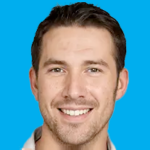Last Updated on April 19, 2024
If your car is leaking oil after an oil change don’t panic. There are a few possible reasons why this leak may be happening.
When a car is leaking oil after an oil change its typically because the oil filter is not on tight enough. Oil will begin to seep out around the loose oil filter and find it’s way onto the ground. Another common cause is from oil that spilled during the change procedure, and is now dripping off the bottom of the car.
Although not as common, but may also lead to oil leaks after an oil change is dry rotted engine gaskets, oil seals or loose connections. Check underneath the car for leaks around the oil pan and drain plug.
Also check the engine for signs of oil leaks around the valve or timing covers. These are the most common areas for oil leaks.
Leaks in your engine oil can do some serious damage. Not only can they cause your engine to fail, but they can also start a fire. Which is why it’s important to find out why the car is leaking and fix the problem.
In this post, we’ll explore some potential causes of an oil leak after an oil change. Then we’ll give you some tips on how to fix them.
Now, let’s dive into the details.
Car Leaking Oil After an Oil Change May be Due to Loose or Incorrect Oil Filter
At every oil change, its common practice to replace the oil filter. Oil filters are important because they help keep your engine oil clean.
During an oil change, if the new oil filter doesn’t fit properly, that could cause an oil leak. Clean oil will begin to seep out and around the filter, eventually puddling on the ground.
Or, if the oil filter wasn’t put on tight enough, pressure from the engine will cause oil to leak. Mechanics recommend once the filter is on tight, turn it a further ¾ of a turn to form a proper seal.
Notice the oil leak after an oil change is coming from the oil filter area? Then call the shop that performed the work immediately. Chances are, the oil filter is either the wrong size, or not on tight enough.
Drain Plug Washer is Over Tightened or Hasn’t Been Replaced
A drain plug washer, also referred to as a “crush washer” is there to help keep oil from leaking. This clever little washer helps provide a little spring pressure between the mating surface and the bolt. It’s designed to compress when forces are applied to them, providing a more uniform seal to the mating surface.
Because the plug washer is made of soft metal, it’s not hard to over tighten the drain plug. Doing so could distort the washer, allowing oil to seep past through the drain plug threads.
However, if the drain plug washer wasn’t replaced with a new one at each oil change, this could also cause be the cause of your oil leak. Most auto manufacturers recommend replacing the drain plug washer at every oil change. If not, the washer can flatten and warp, allowing oil to seep out of the pan.
Additionally, if your car requires a drain plug washer but one wasn’t put on, this will certainly cause an oil leak after oil change.
If you see oil leaking from the drain bolt area, there’s a good chance it has something to do with your drain bolt washer.
The Oil Cap is on Wrong or Loose
The engine oil filler cap is a crucial tool in ensuring your car’s operation. It’s only job is to cover the oil fill tube, keeping oil from escaping while the engine is running. However, if you notice oil splatter all over the engine–then you have a problem with your cap. Although oil leaks caused by the oil cap are rare, they can happen!
During a routine oil change, the oil cap is removed so fresh new oil can be poured into the engine. If by chance the oil cap was threaded on wrong, well then crankcase pressures will cause oil to splash out of the engine. But don’t panic, this is an easy fix. Check to see if the oil cap is threaded on correctly. Does it look flush with the fill tube, or slightly crooked? If so, then that’s the cause of your oil leak. Simply remove the cap and reinstall.

It’s also possible the oil cap is just not threaded on tight enough. Because, that too can cause oil to find its way out of the fill tube. See if the oil cap spins to the left or right at all. If so, then it’s loose and needs to be tighten.
As mentioned above, oil leaks due to problems with the oil cap are often rare. But if the mechanic was in a rush, well then it’s certainty possible.
Over Filling the Oil
You probably have heard not having enough oil is bad for your engine. Well, so too is having too much oil! When too much oil is poured into the engine, it could foam up inside and reduce hydraulic pressure. This can also put extra stress on your car’s gaskets and seals, which could cause oil leaks.
Checking this is easy–simply pull out the cars dip stick and check the oil level. If the oil level is past the “Full” line then this is the cause of the leak. The solution unfortunately, is to remove some of that extra oil.
Bad or Rotted Gaskets Can Lead to an Oil Leak After an Oil Change
When you notice that fresh oil is dripping from your car after an oil change, there’s a good chance it stems from rotted gaskets or dry seals. Over time these vital components degrade and loose their sealing ability, which leads to leaks in the engine compartment.
Unfortunately, if this is the cause of your oil leak then a visit to the dealership or local mechanic is required. On average however, most car gaskets and seals should last at least 5 years or more. If your vehicle is still under warranty, contact the dealership right away.
Final Thoughts
If you’re car is leaking oil after an oil change, it’s important to take the time to diagnose and fix the problem. There are a few common reasons why oil leaks occur, hopefully this article has given you a good starting point for finding the issue.
Have you had experience with an oil leak after an oil change? Tell us about your experience in the comments below.

Managing Editor
Christopher is an automotive technical writer. When he’s not at the local autocross event, he can often be found working on one of his cars. Specializes in automotive class action law, industry trends, and automotive maintenance. Email me direct, or learn more about us

